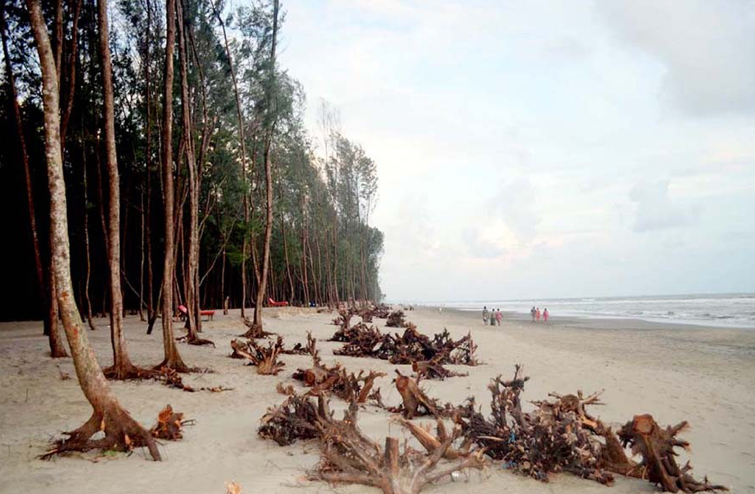
Published :
Updated :

The government's decision to return 12,000 acres of forestland in Cox's Bazar to the Forest Department reversing previous allocations to various agencies offers a reason for optimism. The fact that such a vast expanse of forestland from Bangladesh's already limited forest cover was handed over to different entities with official approval exposes how little environmental preservation was a priority for past governments. While much more remains to be done to safeguard the forests of Cox's Bazar, this current move indicates a shift in attitude and a growing political willingness to correct past wrongs.
A recent report published in this paper quoted environment adviser Syeda Rizwana Hasan as saying that 700 acres of illegally occupied forestland in Cox's Bazar have already been recovered, which suggests a strong start for the anti-deforestation campaign. The adviser also noted that construction on 150 acres of forestland illegally occupied by an individual has been stopped and 20 acres allocated to a football academy are being reclaimed. There is also ongoing initiative to return land on Sonadia Island that had been allocated to the Bangladesh Economic Zones Authority (BEZA). These specific developments, while encouraging, also brought to light the troubling reality that many of the encroachments and forest clearings were carried out by government departments and agencies themselves. Entities meant to serve the public interest and protect national assets have, ironically, emerged as primary drivers of forest destruction. Cox's Bazar which is home to the critically endangered Asian elephant and numerous other species including deer, wild pigs and monkeys has lost a quarter of its forest cover due to these encroachments. The reckless destruction of these habitats in the name of infrastructure and departmental expansion is a textbook example of development being pursued at the cost of ecological survival.
The crisis of forest encroachment extends well beyond Cox's Bazar. Forests are shrinking from the Sundarbans to the Chattogram Hill Tracts due to a confluence of factors including illegal logging, agricultural expansion and uncontrolled industrial activity. Even the iconic Sundarbans, a UNESCO World Heritage site, has witnessed an alarming drop in tree numbers over the years. Rampant extraction of resources is pushing the Sundarbans towards irreversible ecological decline. Forests, especially those along the coast, have historically served as natural barriers against extreme weather events in addition to their critical function in preserving ecological balance. It is hard to comprehend how any logic of development could justify the removal of such critical protections.
Past attempts to reclaim forestland through eviction drives have frequently been undermined by powerful land grabbers who secured status quo orders from the courts. To avoid a recurrence of such setbacks, the government must act with full transparency and resolve. One crucial step would be the public release of a comprehensive and easily accessible list of individuals and institutions responsible for illegal forest occupation, an action that could serve as a strong deterrent. Furthermore, a zero-tolerance policy must be enforced to ensure that not a single inch of forest land is encroached upon going forward. The environment adviser's commitment to returning the 12,000 acres of forestland in Cox's Bazar to the Forest Department must also be fulfilled without further delay. Once recovered, the land should be swiftly reforested to help restore ecological balance. At the same time, legal and administrative action must be taken against those who have benefitted from forest plunder, those who shielded them, and those whose negligence or wilfulinaction enabled this abuse.


 For all latest news, follow The Financial Express Google News channel.
For all latest news, follow The Financial Express Google News channel.